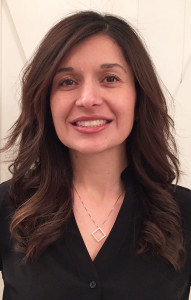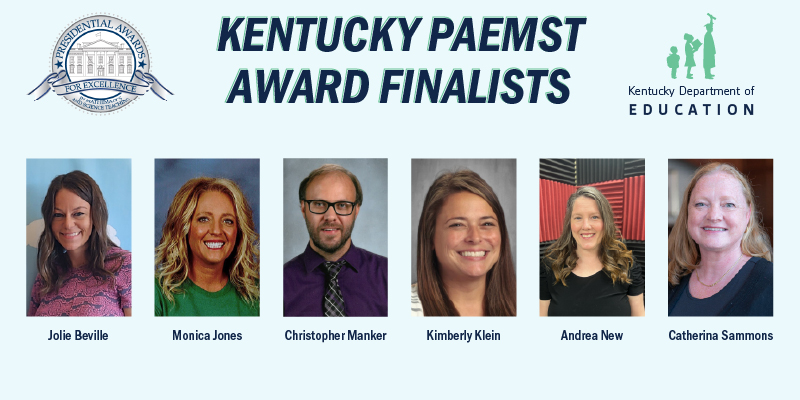“Para atras ni para tomar impulso!”

Carla Wilson
By Carla Wilson
carla.wilson@oldham.kyschools.us
Translated to English, this idiom means to always move forward, never backwards, not even to gain momentum. I knew this is how I had to approach the implementation of the Next Generation Science Standards this school year.
I knew it would be a challenge and I was not sure how I felt about it, but for me, looking back was not an option. I also knew that the leaders of my school district had done everything possible to set me up for success. Oldham County leaders created a district curriculum science team, which laid a strong foundation for the work that I would find ahead of me.
It all began early last year when Oldham County created a curriculum team. This team was comprised of a representative from each high school in each science content area – biology, chemistry and physics. The elementary and middle schools also followed this plan. The task of these teams was to develop a viable curriculum from the science standards for every learner who enrolls in our Oldham County schools, from preschool through 12th grade.
The school system leaders told the curriculum team to make sure the new science curriculum did not seem like a march through standards, but instead more like a story – a well-told science story that our learners would have the ability to experience. After all was said and done, we – the teachers – ended up with a set of curriculum documents that sets the stage for the story we will carry out in our classrooms. That is when the hard work began.
Leaders in the district specifically did not want to hand out units to the teachers, but instead asked teachers to collaborate to develop units, keeping in mind that we all have different teaching styles and we all bring different experiences and backgrounds to our classrooms. The goal was not to make every teacher teach the same way, but to make sure that we had a continuous common story from preschool to 12th grade.
This story not only had to be cohesive, but it also had to follow the intent of the new science standards. We could not simply take the old units/lessons and rearrange them to fit our new curriculum. The entire way we taught science had to change.
Before I knew it, the first day of school was in front of me. I was very uncomfortable because I felt like a brand new teacher with an entire unit plan, but not sure how it will go or how well the lessons will flow. One thing was clear; the beginning of this year had to be different. If I was going to expect my students to dive into inquiry and engage in scientific argumentation, I had to set the stage for that. I needed to create a classroom culture that would be a safe place to ask questions, engage in argument and design experiments, but most importantly, it had to be a safe place to think outside the box without the fear of being wrong. This took a lot of time and effort. I see the results for students, and know that this time was well spent at the beginning of the year.
After the preliminary planning, my first unit after that was scientific argumentation, which is what we, the curriculum writing team, decided to call this unit. At first, I did not know if it was a great idea to begin the year with this unit – which was heavy in the practice of argumentation – when students had not learned any content yet. I decided to go forward since the unit already was designed this way.
In this unit, we incorporated a lot of the climate issues and human impact standards as the vehicle for the students to obtain information, analyze and interpret data, make claims from evidence and use these claims to engage in arguments. Reminding students along the way that we were not arguing with the purpose of finding out who was right or wrong, but to advance our understanding and knowledge in science. This stressed that argumentation will be a key component of our learning this year. By the end of this unit, I came to realize that it was the perfect way to begin the year since it emphasizes the behavior I want to foster in students as we move through the content and practices.
Even though I am satisfied with the outcomes so far, I can’t really say everything is perfect – far from that! The biggest challenge for me this year is that I have very little time to grade assessments since I spend most of my time designing lessons that adequately address the science and engineering practices.
The biggest reward this year is actually to see the fruits of this beautiful product. Students are not just learning science, but living and experiencing science. I am able to see students grow as not only science learners, but also as life-long independent learners. They are learning skills this year that will help them for years to come.
I do worry about getting through all the content since lessons take me longer due to the discovery component of them, rather than feeding information to students. But I remind myself that they are getting more out of it because of the way they are experiencing science in the classroom now.
Like I said at the beginning, looking back is not an option. I will keep working to move my students forward in their science knowledge, remembering that I too have much to learn in the process.
Carla Wilson is a science teacher at North Oldham High School.




Leave A Comment